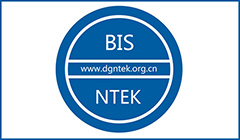
BIS is a third-party certification body. The products that pass its certification will be labeled with ISI. The label has a wide influence in India and neighboring countries, and has a good reputation and is a reliable guarantee for product quality. Once the product is marked with the "ISI logo", it means that it meets the relevant Indian standards, and consumers can purchase with confidence.
In 1955, India began to implement a product certification system to harmonize product regulatory standards and requirements to ensure product quality and safety. According to The BIS Act (1986), India's product certification implements the principle of voluntary certification, but considering the public health and safety and mass consumption, the Indian government implements a real-time decree to implement specific products. Compulsory certification. Designed to provide end consumers with quality assured, safe and reliable products. Products that are included in compulsory certification are required to obtain a product certification certificate in accordance with Indian product standards before they can enter the market. Therefore, if you want to enter the Indian market, it is necessary to understand the Indian product certification system.
According to The BIS Act (1986), the Indian Bureau of Standards (BIS) is the Indian Standardization and Certification Authority responsible for product certification. It is also the only product certification body in India and was formally established in 1987. In order to replace the Indian Standards Society established in 1946. The Indian Bureau of Standards (BIS) is part of the Consumer Affairs and Public Distribution Department. Although it is a social legal entity, it exercises government functions. Its main task is to develop and implement national standards; to implement a conformity assessment system; to participate in ISO, IEC, etc. on behalf of the state. Standardization activities. The Indian Bureau of Standards (BIS) is a financially independent organization with certified income as its main source of income. There are 5 regional bureaus and 19 branches in the BIS. The regional bureau supervises the corresponding branch office. The 8 laboratories to which BIS belongs and some independent laboratories are responsible for the inspection of samples taken during the product certification process. These laboratories are all implemented in accordance with ISO/IEC 17025:1999.
India's BIS certification LOGO has been certified by the Indian Standards Association, the predecessor of BIS, in 1955. At present, BIS has issued more than 30,000 product certification certificates. Manufacturers are allowed to attach ISI labels after obtaining certificates. The scope of certification covers almost every industrial field such as agricultural products, textiles and electronics.
BIS certified product range
1.Textile
2. Chemicals and pesticides
3. Rubber and plastic products
4. Cement good concrete products
5. Building materials
6. Pumping, irrigation, drainage and sewage treatment plants
7. Pipes and installations for water supply systems
8. Basic metals and processed metal products
9. Machines and equipment
10. Electronics and optical equipment
11. Auto parts
12. Agricultural products, food and tobacco
13. Black tea and drinks
14. Packaging drinking water and natural mineral water
15. Leather goods
16. Wood products
17. Pulp products
18. Test equipment
BIS certified information
1. Application form
2. Proof of the appointment form of an agent in India, or proof of the manufacturer's office in India, and the permit of the Reserve Bank of India
3. A document proving the establishment of the company, such as a registration certificate
4. Process flow chart showing the whole process of product manufacturing (from raw materials to finished products)
5. Quality control system (such as quality manual, quality control plan, test arrangement, etc.)
6. Provide additional details on product or system certification
7. Provide details of components or raw materials used in the manufacture of the product prior to certification
8. List of manufacturing machines
9. List of test equipment during the test
10. Product design
11. Details of the laboratory director, technical and QC staff qualifications and experience
12. Test report from an accredited independent laboratory or factory's own laboratory
13. Schematic diagram of the layout of the plant, which can clearly show the main production machines, laboratories, etc.
14. Schematic diagram of the traffic near the factory, a schematic diagram from the nearest airport or train station to the factory, and a detailed description of the factory in India
15. Bill of Exchange
Certification process
1. Apply. Foreign producers wishing to obtain BIS certification generally need to use a dedicated application and prepare relevant documents to apply to the BIS New Delhi headquarters.
2. Record. The BIS examines the application documents and materials submitted by the applicant. If the procedures are complete, the application will be recorded. Applicants are required to pay the corresponding processing fee.
3. Initial factory inspection. BIS will assign an official group of no more than two people to the factory for inspection. Applicants must bear the travel expenses, visa fees and other expenses incurred by the official delegation to the factory inspection and the corresponding inspection fees;
4. Issue a certificate. If the initial inspection and test results are qualified, and the BIS-approved inspection and testing program is implemented after applying for approval, and the BIS identification fee is paid, the applicant may be issued a certificate. The certificate is valid for 1 year. After the certificate is granted, the licensee pays the annual fee for the identification fee memory certificate.
Post-certification supervision. BIS monitors the quality of its certified products through routine supervision of the governors and surprise inspections and tests on samples from factories and markets. If it is checked regularly, the samples taken from the factory or the market are inspected by the factory and the independent test results meet the requirements, and the certificate is updated. The executor submits an application for renewal to BIS by submitting the specified form, and the certificate renewal fee is Rs. 500. The performer is also required to bear the cost of the sample inspection.
Certification considerations
1. The BIS certification is valid for 1 year and the applicant is required to pay an annual fee. You can apply for an extension before the expiration date. At this time, you need to submit an application for extension and pay the application fee and annual fee.
2. BIS accepts CB reports issued by valid institutions.
3. If the applicant meets the following conditions, the certification will be faster.
a. Fill in the factory address of the factory address in the application form
b. The factory has test equipment that meets relevant Indian standards.
c. The product officially meets the relevant Indian standards
NTEK advantage
NTEK is a professional BIS certification body and a national CNAS authorized laboratory (L5516). NTEK has a team of experienced BIS certification experts to provide you with one-on-one BIS certification program. It has the strength to provide a full range of one-stop testing and certification services for customers' products to obtain national certification, and help your products sell well all over the country.
Free question answering line:
0769 23301618
Any questions about testing and certification, we will give you the full answer, service to your satisfaction!
Tel:+8617722308370
Email:abel.zhang@gdntek.org.cn
skype:13790184018
